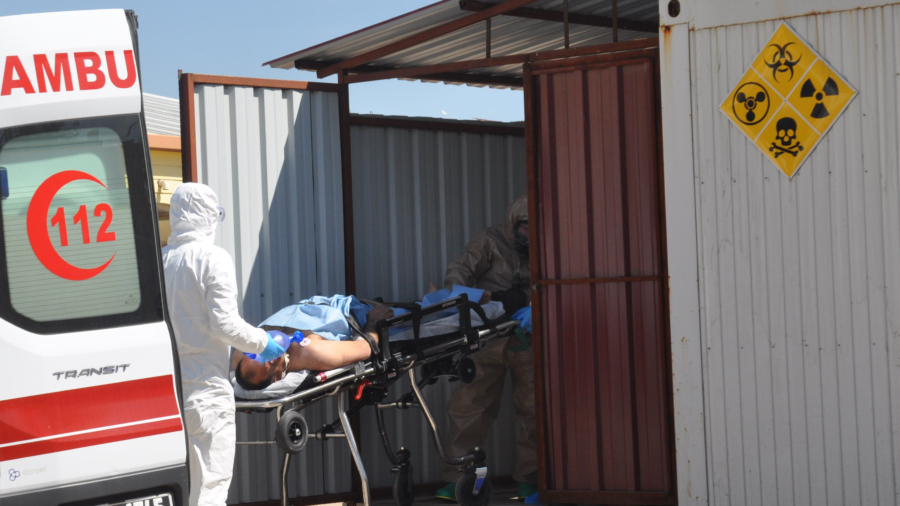BEIRUT (AP)—French president Francois Hollande is condemning what he calls a “war crime” after a suspected chemical attack in Syria.
Hollande recalled that France had pushed for an international military campaign against Syrian President Bashar Assad over his use of chemical weapons in 2013.
“France has not changed its position on this issue,” he said according to Le Foll.
France has supported Syrian rebels against Assad for years.

EU Council president Donald Tusk condemned the suspected chemical attack. He called it “another reminder of the brutality” of Syria’s regime and said the perpetrators must be held accountable.
Tusk said Wednesday that the Syrian regime bears “the primary responsibility for the atrocities,” but also blamed supporters of President Bashar Assad’s government who he said share the “moral and political responsibility.”
Tusk spoke in Athens, following talks with Greek Prime Minister Alexis Tsipras.
Many of the attack’s survivors are being treated in Turkey, where they have described being short of breath, dizzy, and nauseous after the attack.

A suspected chemical weapons attack which left more than 70 dead in a rebel-held town shows war crimes continue in Syria, UN chief Antonio Guterres said today. ( JOHN THYS/AFP/Getty Images)
A statement from the governor’s office for the border province of Hatay says Wednesday the victims are being treated in several state and private hospitals in the towns of Antakya, Reyhanli and Iskenderun.
The death toll from the suspected sarin attack has been raised to 72, including about a dozen children.
Assad’s government has denied involvement in the attack, saying it does not possess chemical weapons, and laid the blame on rebel forces.

Third time in a month?
Lebanese Prime Minister Saad Hariri says people should not be shocked by the chemical attack that killed dozens in Syria because the international community is allowing such acts to happen.
Hariri said Wednesday that “the world should not be shocked because it’s letting such a regime do what it is doing. What should shock us is the increase of children dying and that the whole world is watching.”
He told reporters at a Syria donor conference in Belgium that “everyone is coming to Brussels to make a statement and the regime made its statement in Syria.”
Hariri also said that Lebanon has been overwhelmed by the arrival of some 1.5 million Syrian refugees and “cannot sustain this issue anymore. The international community has to do something.”
NATO chief Jens Stoltenberg said in a statement Wednesday that “this is the third report of the use of these barbaric weapons in the last month alone.”
Pope calls attack ‘an unacceptable massacre’
Pope Francis has called a suspected chemical weapons attack that killed dozens, including many children, in Syria “an unacceptable massacre.”
The pope said Wednesday during his general audience that he was “watching with horror at the latest events in Syria,” and said he “strongly deplored the unacceptable massacre.”
He called on the “conscious of those with political responsibility both locally and internationally to cease this tragedy and bring relief to that dear population that for too long has been exhausted by war.”
He also encouraged those bringing aid to the stricken population “even amid insecurity and discomfort.”
Israel seeks ‘emergency’ response
A pair of Israeli lawmakers is urging parliaments around the world to hold “emergency” discussions on the suspected chemical attack in Syria.
Erel Margalit and Nachman Shai, both members of the opposition Zionist Union, sent their request to the Inter-Parliamentary Union, an organization of national parliaments around the world.
In the letter sent on April 4, they urged fellow parliamentarians to condemn the alleged attack, which they said is “taking humanity 70 years backwards.”
“The day when mass extermination measures are taken against people is the day when we as members of parliaments should stand fierce in the fire front and stop the horror,” they wrote.
Israel has largely stayed out of the fighting in neighboring Syria, though it has carried out airstrikes on suspected arms shipments to Syrian ally Hezbollah.

